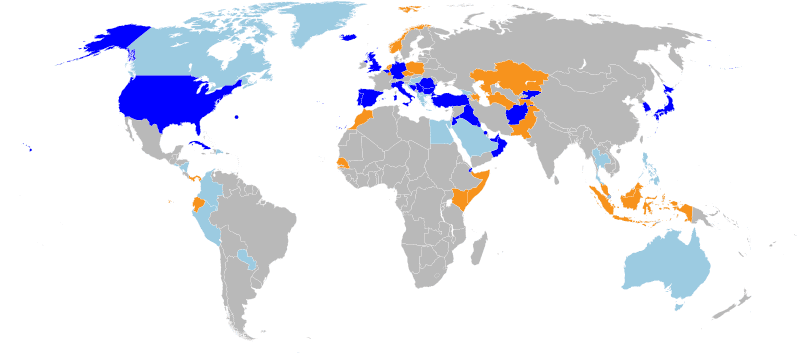The Dangerous Pursuit of Primacy

Christopher Preble and William Ruger make the case against the continued pursuit of primacy:
There have always been dangers in the world, and there always will be. To the extent that we can identify myriad threats that our ancestors could not fathom, primacy compounds the problem. By calling on the United States to deal with so many threats, to so many people, in so many places, primacy ensures that even distant problems become our own [bold mine-DL].
Primacy’s other key problem is that, contrary to the claims of its advocates, it inadvertently increases the risk of conflict. Allies are more willing to confront powerful rivals because they are confident that the United States will rescue them [bold mine-DL] if the confrontation turns ugly, a classic case of moral hazard, or what MIT’s Barry Posen calls “reckless driving.”
I agree with all of that. I would just add that primacy also makes conflict more likely by giving U.S. policymakers a ready-made excuse to resort to the use of force against a number of other states or to support clients in their military campaigns. Insofar as they justify U.S. primacy by claiming to be the protector of “world order,” our leaders assume that our government has the right and even the responsibility to interfere in foreign conflicts and to police civil wars on the other side of the world. The U.S. arrogates to itself the authority to determine which foreign governments should remain in power and which should be undermined or overthrown, and it sometimes gives itself the role of executioner when it decides that a foreign leader’s rule should end. By assuming the role of enforcer of “world order,” the U.S. takes upon itself the responsibility for forcefully responding to new conflicts, and any administration that isn’t sufficiently eager to do that comes under severe criticism for its “failure to lead.”
In addition to all that, our leaders believe that in order to demonstrate “leadership” the U.S. has to indulge our clients in whatever aggressive and destructive behavior they deem appropriate and to give them uncritical backing in the name of “reassurance.” If our clients want to stoke a conflict in another country, our leaders act as if we have to go along to keep them happy, and if they want to attack a neighbor our leaders back them up with absurd claims that they are merely defending themselves. Washington indulges these states in the name of preserving the relationship with them, but in so doing shows why the relationships themselves are toxic liabilities that need to be cast aside.
When Clinton talks about U.S. “leadership” and “American exceptionalism” later today, these are the shoddy and dangerous assumptions that she’ll be relying on.
Comments